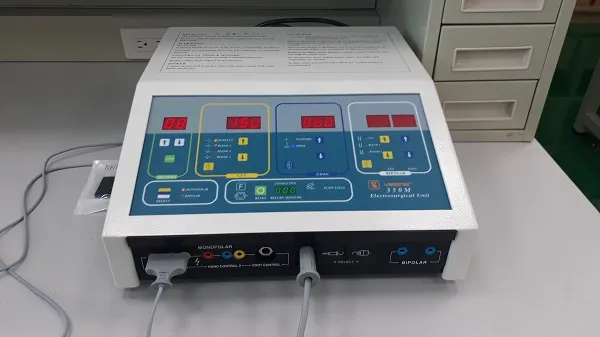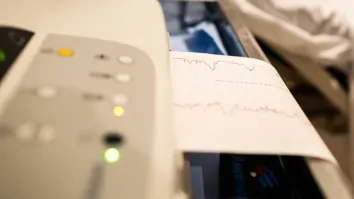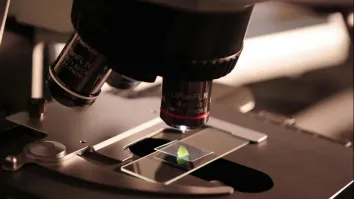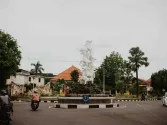
Extensive R&D boosts Taiwan's bid for Asia's medical tourism market
The exports of medical devices hit a CAGR of 8.6% to US$1.82b in 2015.
From revamping the traditional syringe to manufacturing high-density electrical currents for surgical use, Taiwan SAR is slowly but extensively building on its medical research and development capabilities in its bid to put the island nation on the map for quality and affordable healthcare services.
Taiwan is steadily leveraging its strong manufacturing expertise in high-tech electronic gadgets to disrupt the medical industry. This comes as exports of medical devices were able to weather the overall economic slowdown with CAGR hitting 8.6% during 2011-2015 to US$1.82b.
The sector is also set for a promising growth trajectory as a government report estimated that the medical device market is expected to grow 7.7% between 2014-2019 as Taiwan emerges as a strategic gateway to the region’s emerging markets as well as to Mainland China.
The Tsai administration’s latest economic development model similarly identified the biomedical sector as one of the next generation industries as part of the national R&D programme. This involves enhancing global links with local innovation clusters like the Nangang Biotech Industry Park, Jhubi Medical Materials R&D Park, Central Taiwan Science Park and Southern Taiwan Science Park to emerge as APAC R&D hub in the field.
"The government wants to take advantage of Taiwan's existing industrial foundation to help the country upgrade itself at a faster pace and become more competitive," President Tsai Ling Yen said in an interview with Channel News Asia.
Government R&D expenditure rose from 2.3% of gross GDP in 2002 to 3.1% to US$33.7b in 2015, posting the thirteenth highest spot amongst 42 economies. However, this still trails behind the US and China who spent almost half a trillion in R&D at US$502.9b and US$408.8b respectively.
No shortage of private sector interest
An internationally-educated talent pool and the availability of funding and venture capital firms is also accelerating Taiwan’s R&D efforts, according to a report from Frost & Sullivan, as the island is home to some of Asia’s largest business conglomerates like Uni-President and Formosa Plastics Group which have made hefty investments in devices manufacturing and biomedical technology.
However, the private sector is also doing its part by investing in R&D and developing new products and frameworks streamlining the delivery of healthcare services for the island’s 23 million population as well as fueling Taiwan’s bid for Asia’s medical tourism market.
“Several Taiwan companies have in recent years established themselves as one of the leading medical device companies. Several of these companies have established an international team with marketing offices and distributors spread worldwide. New start-up companies are also banking on more innovation and a higher degree of research, allowing them to come up with high quality devices which will allow them to compete on equal grounds with global companies,” Frost & Sullivan noted.
One such company is manufacturer Anntong who is offering its 29-year experience in automotive manufacturing to the medical devices sector through innovative product offerings. One of their products include the micro-needle array which builds on the traditional syringe. Unlike the syringe which has only one concentrated point for drug delivery, Anntong's innovative product offers several contact points which they claim allows for faster and more accurate drug administration.
“Regarding the micro needle array, it is developing an innovative line of novel microneedle-based transdermal drug delivery devices. This breakthrough technology revolutionises the way in which medicines can be administered, increasing efficacy, safety, and compliance,” said Anntong chief of R&D Stephen Wang.
Electrical surgical unit provider Yesng is also expanding its R&D efforts through a newly opened factory in Tai Chung where it can meet growing demand for specialised ESUs. Powered by high-density electrical currents, the tech can surgically cut tissue, rendering scalpels and blades irrelevant and similarly do hemorrhage control by performing the function of sutures and clamps.
Similarly, manufacturer Transverse is also leveraging on the multi-faceted capabilities of laser technologies to address a wide range of medical problems like treating eye diseases, detecting ulcers, growing hair, pain management and even for daily health maintenance.
Photobiostimulation or the process in which low-level lasers treat diseased areas actually provide a more accurate aim and do not cause damage on a cellular or tissue level, said Joseph Huang of Transverse.
Some companies, however, choose to do their manufacturing and R&D in Taiwan but are setting their sights beyond the island due to limited market size in an attempt to grow their brand like respiratory product manufacturer ACare Technologies, a leading company providing pulse oximeters, CPAPs and oxygen regulators to foreign markets like the Middle East.
However, Taiwan’s medical network is thriving not just because of sophisticated equipment and technologies improving healthcare delivery but also because of companies who specialise in providing apparatus for medical operations and daily healthcare needs like healthwear.
China Surgical Dressings is one such company who has long provided healthcare institutions ini Taiwan, Japan and US with durable face masks, gauzes and tissue for consumer and institutional uses. Danken, on the other hand, is a garment manufacturer whose line of healthcare socks aims to treat various diseases like diabetes and athlete’s foot. Their popular compression socks also improves blood flow and muscular recovery and reduces the chance of injury and cramps for high-intensity exercises and sports activities.
Get to know these companies and more as the latest healthcare developments and solutions from electro-medical equipment to medical technology and IoT applications will be showcased at Medicare Taiwan: Taiwan International Medical and Healthcare Exhibition which will take place from June 21 to 24 at the Taipei World Trade Center Exhibition Hall 1.



















 Advertise
Advertise





